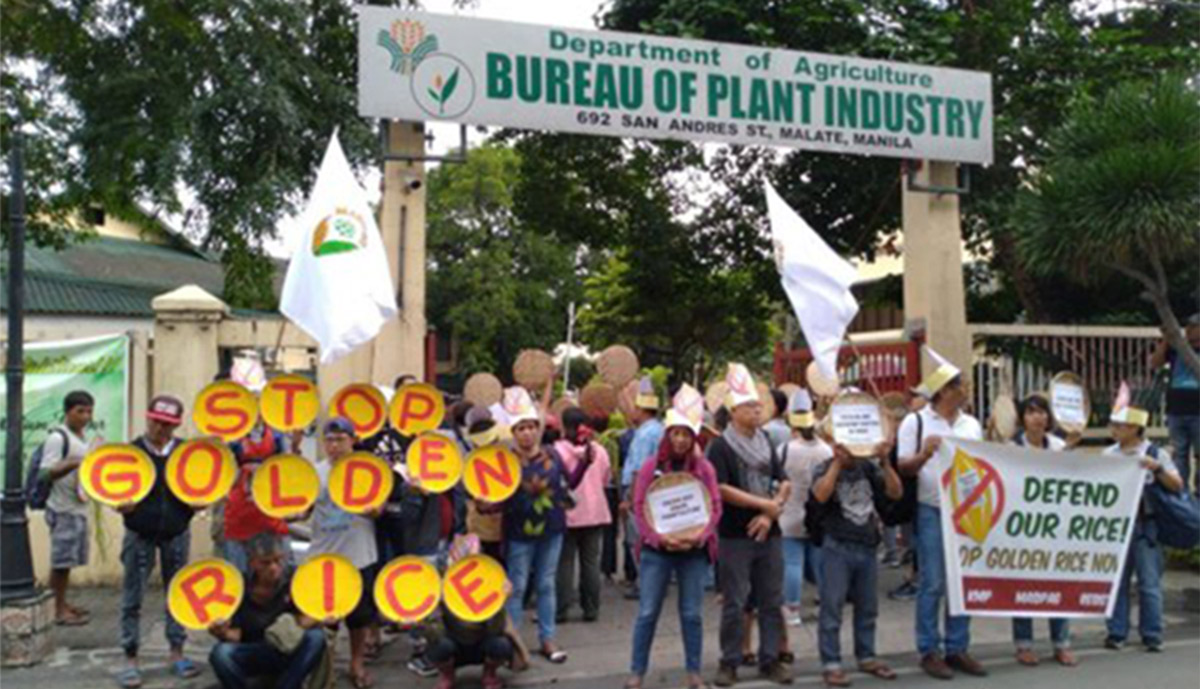
All commercial propagation of golden rice and Bt eggplant must be stopped until they are proven safe
There's welcome news from the Philippines relating to the court case on GM golden rice and Bt brinjal (eggplant). The Court of Appeal ruled in favour of the applicants – farmer/scientist group MASIPAG and others – and against the Philippine Government's actions that granted permits for the commercial propagation of Bt brinjal and golden rice.
The respondents (the Philippines Government) can appeal against this decision, but it is a significant victory for farmers, the environment, and people's health. The judges' decision to uphold the precautionary principle and their insistence on adherence to proper risk assessment procedures gives a clear signal against any deregulation measures.
A press release from MASIPAG says:
"This decision underscores the triumph of farmers and the people in asserting their constitutional right to health and a healthy and balanced ecology against the introduction of unwanted, unnecessary genetically modified crops.
"Golden rice and Bt eggplant, touted as a solutions to vitamin A deficiency and pest infestation, faced staunch opposition from small farmers, consumers, children's rights, scientists, and sectoral groups who have long advocated for healthy, sustainable, community-driven farming methods through farmer-led agroecology. The Court of Appeals ruling acknowledges the inherent risks associated with genetically modified crops and reaffirms the importance of conserving and protecting biodiversity and the health of the people."
The court ruled that all commercial propagation of golden rice and Bt eggplant must be stopped until "the concerned respondent government agencies submit proof of safety and compliance with all legal requirements".
GMWatch has repeatedly drawn attention to the lack of proper tests showing that GM golden rice and Bt eggplants are safe to eat.
Under the ruling, government agencies will not be able to approve any application for contained use, field testing, direct use as food or feed or processing, commercial propagation, and importation of GMOs until they have strengthened their risk assessment procedures – and submitted the concrete mechanisms for achieving this to the Court of Appeal.
MASIPAG says, "This victory in the Philippine Court of Appeals is a testament to correctness of forwarding farmer-led agroecology and food sovereignty and to the resilience and determination of farmers who have tirelessly defended their rights to control their seeds, food systems, biodiversity and health of the people. It sends a powerful message to corporations and policymakers that the future of agriculture lies in empowering farmers and embracing agroecological principles that prioritise environmental sustainability, biodiversity, and the well-being of farming communities.
"As we celebrate this momentous and historic win, the call to meaningfully support and enable our farmers in their transition towards agroecological farming practices becomes more urgent than ever. However, the need to sustain our efforts and ready ourselves [for] a possible hearing in the Philippine Supreme Court is imperative.
"By investing in farmer-led initiatives and promoting policies that prioritise food sovereignty, we can build a more resilient and equitable food system that nourishes both people and the planet."
Photo: A demonstration against Golden Rice, Manila Photo: Ryan Damaso/MASIPAG Luzon










